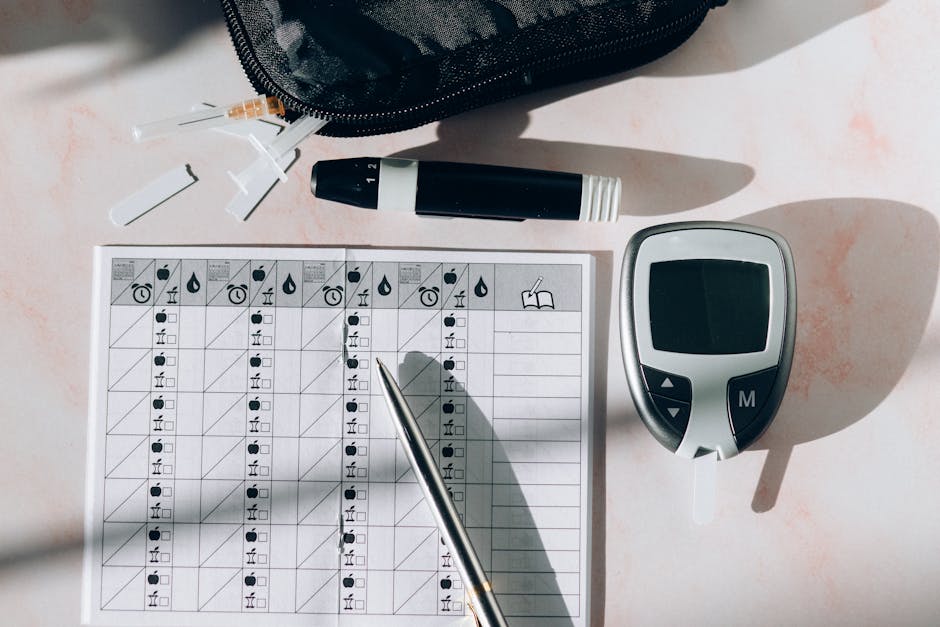
How Does AI Personalized Nutrition Work for Metabolic Health Optimization? Expert Q&A
Share
What Is AI Personalized Nutrition?

AI personalized nutrition uses artificial intelligence to analyze your unique health data—from genetics and microbiome to lifestyle and wearable device metrics—to design tailored diet plans. Unlike standard nutrition advice, these plans adapt dynamically to your body's responses and evolving health goals. AI platforms can process massive datasets, including metabolic markers and real-time food intake, to optimize dietary recommendations for individuals.
Why Is Metabolic Health So Important?
Metabolic health refers to how efficiently your body manages energy, blood sugar, and fat. Poor metabolic health raises the risk for obesity, diabetes, and heart disease. Personalized nutrition powered by AI aims to fine-tune your diet to support stable blood sugar, healthy lipid levels, and sustained energy, helping to prevent chronic conditions before they start.
How Does AI Use Wearable Health Data?

Wearable devices—such as continuous glucose monitors (CGMs), fitness trackers, and smart nutrition kits—collect real-time data about your body’s responses to foods and activities. AI algorithms analyze:
- Blood glucose fluctuations after meals
- Heart rate and activity levels
- Sleep patterns
- Caloric intake and nutrient breakdown
By combining these metrics, AI platforms generate a comprehensive metabolic profile and adjust dietary suggestions accordingly. For example, if your glucose spikes after eating rice, the system may recommend alternatives with a lower glycemic impact.
The Role of Smart Nutrition Kits and Precision Nutrition AI
Smart nutrition kits use biosensors to measure biomarkers (like blood glucose, lipids, and even gut microbiome composition) at home. Results are fed into AI-powered apps, which interpret them and design meal plans specific to your metabolic needs. These kits often feature:
- Sample collection tools (for blood, saliva, or stool)
- Companion apps for data tracking
- Instant feedback on food choices
Precision nutrition AI refers to software that uses machine learning and big data to model how your body responds to thousands of foods. These tools can:
- Predict glycemic responses to specific meals
- Suggest optimal macronutrient ratios
- Factor in genetic predispositions and microbiome status
- Continuously refine recommendations based on new data
Real-World Examples: ZOE and DayTwo
-
ZOE uses gut microbiome analysis, CGM data, and blood lipid tracking to deliver highly individualized meal plans. Its AI predicts how you’ll respond to various foods, helping you avoid metabolic spikes and optimize energy.
-
DayTwo applies metagenomic sequencing and AI modeling to create meal plans that minimize glucose spikes—particularly helpful for those with prediabetes or metabolic syndrome.
Both platforms demonstrate how AI-driven nutrition can transform chronic disease management and long-term wellness.
How Does It Work in Practice?
Step-by-Step Overview
-
Data Collection: You use wearables, smart nutrition kits, or mobile apps to log health data (diet, exercise, sleep, biomarker readings).
-
AI Analysis: The platform’s algorithms analyze the data, looking for patterns and identifying dietary triggers for metabolic fluctuations or symptoms.
-
Personalized Plan Creation: Based on your unique profile, the system generates food, supplement, and lifestyle recommendations.
-
Continuous Adjustment: As you provide more data (meals logged, new biomarker readings), the AI adapts and refines your plan for better results.
-
User Feedback and Education: Many platforms include explainable AI features, helping you understand why certain foods are recommended, which boosts engagement and adherence.
Benefits of AI Personalized Nutrition
- Highly tailored dietary plans for optimal health and chronic disease prevention
- Real-time feedback based on your body’s responses
- Improved adherence to healthy eating through interactive, actionable recommendations
- Enhanced metabolic health and risk reduction for diabetes, heart disease, and obesity
- Empowerment through health literacy and understanding of food-body interactions
Cautions and Limitations
- Data privacy: Always check how your health data is stored and shared.
- Clinical validation: Not all platforms have robust clinical evidence—choose tools with peer-reviewed studies.
- Not a substitute for medical advice: AI apps are supportive tools; consult healthcare providers for diagnosis or treatment of health conditions.
- Accessibility: Some kits and devices may be costly or limited in availability.
Future Trends in AI Nutrition
- Integrating multi-omics data (genomics, metabolomics, microbiomics) for deeper precision
- Increasing use of conversational AI and virtual nutritionists for ongoing, personalized support
- Enhanced sustainability focus—recommending plant-based, locally sourced foods
- Expansion into public health and telemedicine for broader impact
FAQs
What kinds of data does AI personalized nutrition use?
AI analyzes genetics, microbiome, metabolic markers, wearable device readings, food logs, and lifestyle inputs to create nutrition plans.
Can AI nutrition apps help with weight loss or diabetes management?
Yes. By predicting individual responses to foods and optimizing meal timing, AI platforms can support weight control and better blood sugar regulation, especially for people with metabolic syndrome or type 2 diabetes.
Are smart nutrition kits safe to use at home?
Most reputable kits use non-invasive biosensors and provide clear instructions, but always follow guidance and consult your doctor if you have health concerns.
How does AI adjust my diet over time?
As you log new data (meals, sleep, biomarker readings), the AI refines recommendations to better match your current metabolic status and goals.
Is my health data private when I use these platforms?
Privacy standards vary. Choose services that use secure storage and transparent data policies; review privacy statements before sharing sensitive information.
References
- Saha, S. et al. (2025) 'Artificial intelligence in personalized nutrition and food manufacturing', Frontiers in Nutrition. Available at: https://www.frontiersin.org/journals/nutrition/articles/10.3389/fnut.2025.1636980/full (Accessed: 5 November 2025).
- TowardsFNB Editorial Team. (2025) 'AI in Personalized Nutrition Market Size to Hit USD 4.89 Billion in 2025', TowardsFNB. Available at: https://www.towardsfnb.com/insights/ai-in-personalized-nutrition-market (Accessed: 5 November 2025).
- Li, J. et al. (2025) 'RAG-based digital health solution for obesity and type 2 diabetes', PLOS Digital Health. Available at: https://journals.plos.org/digitalhealth/article?id=10.1371%2Fjournal.pdig.0000758 (Accessed: 5 November 2025).
- Smith, A. (2025) 'Personalized Nutrition in the Era of Digital Health: A New Frontier for Disease Prevention', NIH PMC. Available at: https://pmc.ncbi.nlm.nih.gov/articles/PMC12474561/ (Accessed: 5 November 2025).
